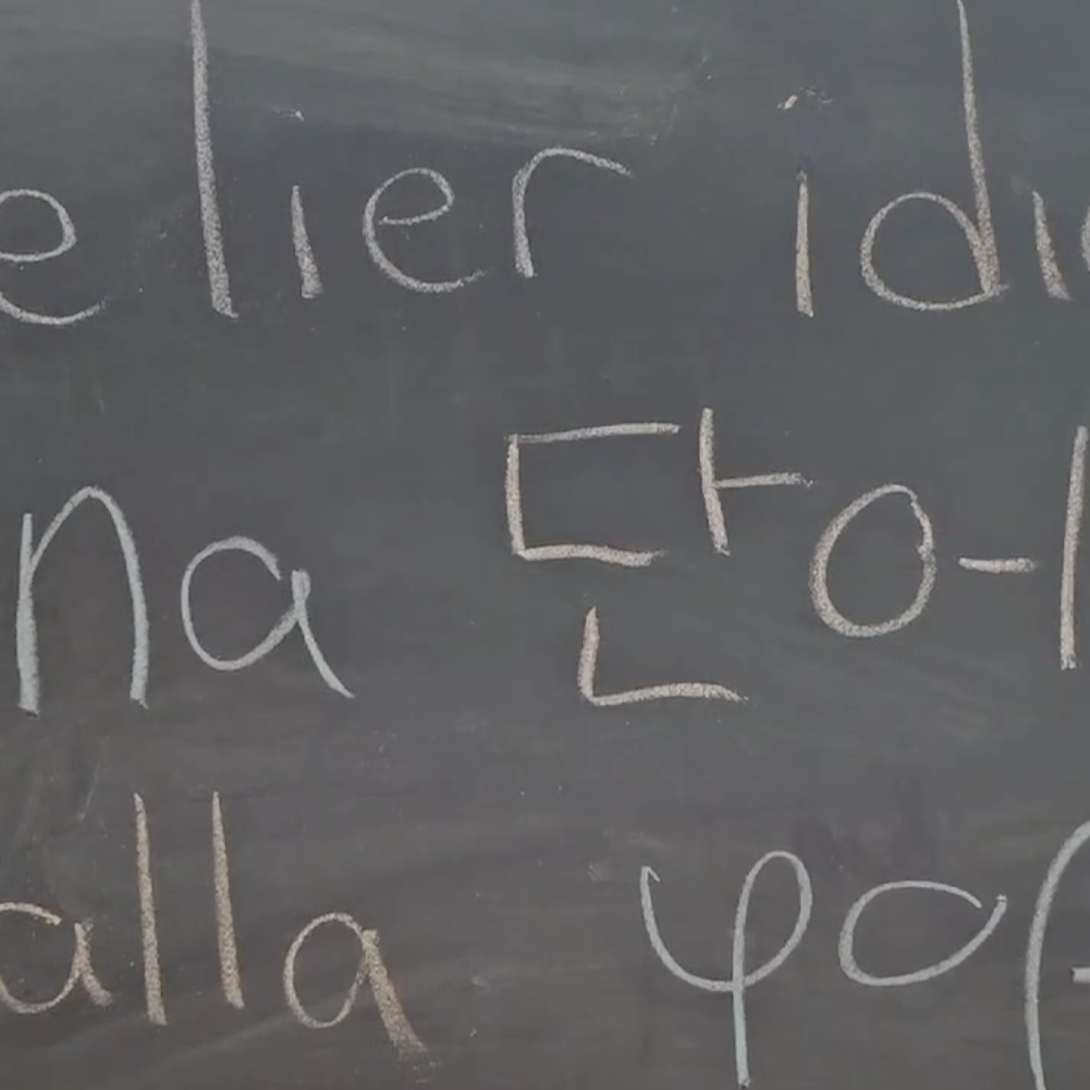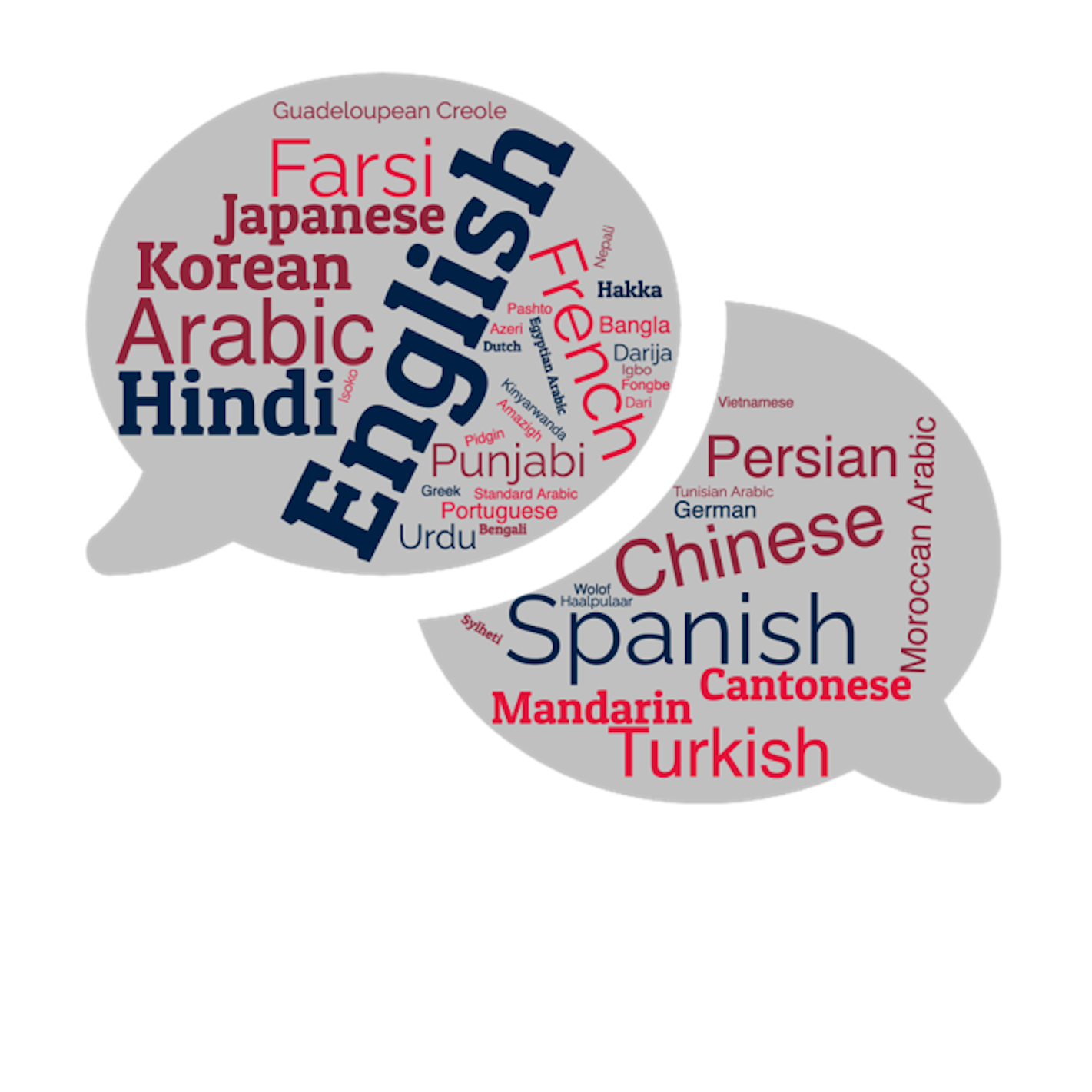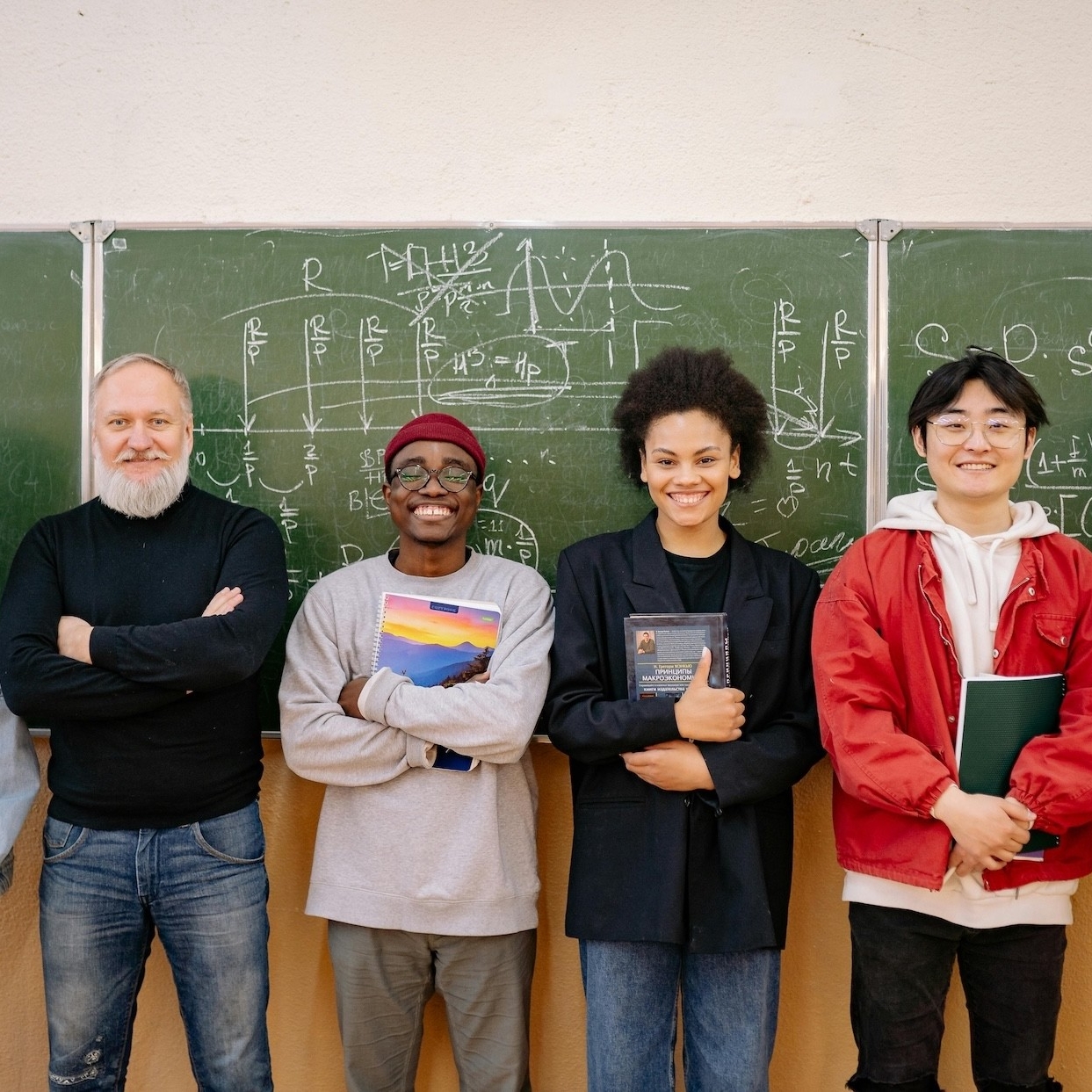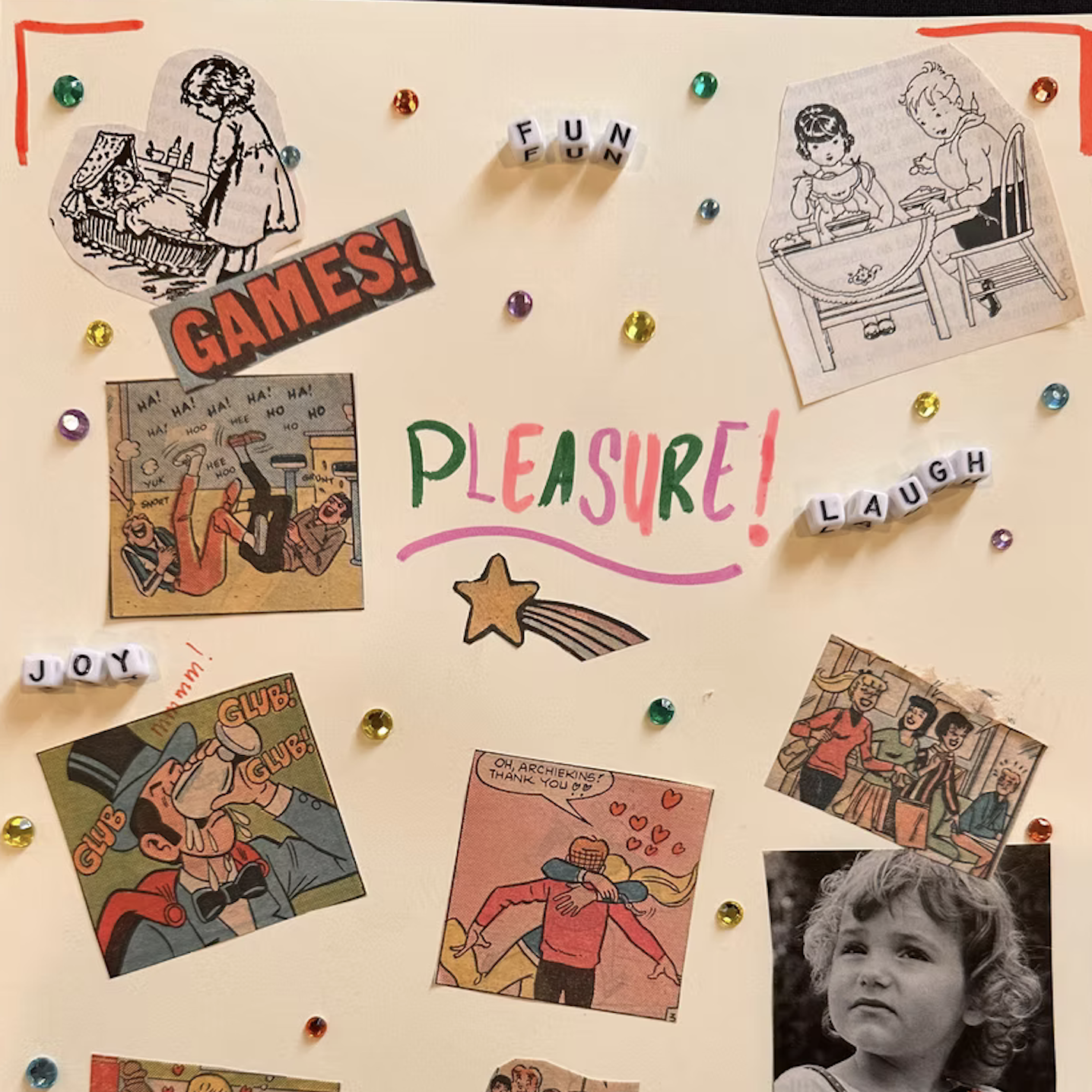Faculty projects
Check out ongoing projects from our faculty engaging their research.
Anti-racism
Addressing diversity through anti-racist translanguaging and critical arts-based pedagogical approaches with pre-service ESL teachers
Faculty member: Jennifer Burton
Funding: Concordia
Project duration: 2024 - 2026
This study foregrounds anti-racist translanguaging practices and critical arts-based pedagogies as central to fostering inclusive and equitable language instruction. By recognizing students’ full linguistic repertoires as resources rather than deficits, these practices challenge monolingual norms and racialized language hierarchies. The goal is to identify pedagogical strategies that not only support linguistic diversity but also actively resist inequitable structures in education, empowering both teachers and learners to engage in transformative, justice-oriented language pedagogy.

Identifying and mitigating discrimination in higher education settings
Faculty member: Kim McDonough & Pavel Trofimovich
Funding: SSHRC Insight Grant
Project duration: 2023 - 2027
This project is exploring students’ experiences with discrimination at Concordia and examining the impact of bridging programs on the recruitment and support of first generation, mature entry, and lower socio-economic status students.
Applied linguistics
A Longitudinal Examination of Automatic Speech Recognition as a Writing Tool in Second Language Contexts
Faculty member: Walcir Cardoso
Funding: SSHRC Insight Grant
Project duration: 2025 - 2029
This research builds on a previous SSHRC Insight Development Grant (2022-2025) by continuing to examine a breakthrough in the development of writing: the use of one's voice. This project investigates the long-term effectiveness of automatic speech recognition (ASR) as a writing tool for second language (L2) learners in academic settings. It analyzes the longitudinal development of ASR-assisted writing, the quality of voice-generated texts compared to keyboarded ones, and how learners’ perceptions of ASR evolve over time. Using a mixed-methods approach across multiple cohorts, the study aims to offer empirical evidence on ASR’s pedagogical potential and inform best practices for integrating voice-based technologies into L2 writing instruction.
Development and validation of an academic language socialization self-assessment tool (ALS-SAT)
Faculty member: Heike Neumann & Florent Michelot
Project partners & organizations: Sandra Zappa-Hollman (University of British Columbia), Saskia Van Viegen (York University), & Sébastien Béland (Université de Montréal).
Funding: SSHRC Insight Grant
Project duration: spring 2025 - spring 2030
The goal of the project is to develop, validate, translate, and then validate translations of an academic language socialization (ALS) self-assessment tool (ALS-SAT). The ALS-SAT will be designed for multilingual students and faculty in English for academic purposes (EAP) and other academic language programs in order to provide personalized feedback that can be used to understand and support student academic socialization needs and academic performance, and guide and support academic language programming at the post-secondary level.

Exploring the benefits of weak social ties for international students' wellbeing
Faculty member: Pavel Trofimovich
Funding: SSHRC Insight Development Grant
Project duration: 2024 - 2026
This project explores links between international students’ wellbeing (feelings of happiness, belonging) and patterns of their verbal and nonverbal communication. The project’s goal is to develop and assess a brief communication-centred intervention which capitalizes on the positive value of people’s brief, low-intimacy conversations with acquaintances, coworkers, and strangers, collectively known as weak social ties.

Evaluating foreign-born job applicants: Understanding and mitigating foreign accent bias among Canadian HR professionals
Faculty member: Mary Grantham O’Brien (Simon Fraser University) & Pavel Trofimovich
Funding: SSHRC Insight Grant
Project duration: 2021 - 2026
Many second language speakers across Canada often experience bias because of their marked otherness: accent bias based on their second language pronunciation and/or cultural bias because of their appearance as a visible minority. Second language speakers tend to earn less, and they are often discriminated against in the workplace.
The goal of this research is to examine accent (and cultural) bias in one specific context- human resource (HR) professionals’ evaluations of second language job applicants - by identifying, describing, and mitigating accent bias that HR professionals might hold towards second language job applicants.
Not seeing ourselves as others see us: Exploring the role of metaperception in lingua franca communication
Faculty member: Pavel Trofimovich
Funding: SSHRC Insight Grant
Project duration: 2024 - 2028
This project explores barriers to lingua franca communication which stem from assumptions that speakers make about their interlocutor and themselves (collectively known as metaperceptions); these assumptions (such as a fear that the interlocutor does not like or respect them) can lead to avoidance behaviors, hurt feelings, and conflict.
The project examines metaperception as a source of communication difficulty for speakers of English as a lingua franca in order to enhance understanding of intercultural contact and help raise speakers’ awareness of the interpersonal dimension of oral communication.

Ultrasound-based longitudinal analysis of the articulatory kinematics of the tongue in second language learning
Faculty member: Walcir Cardoso
Project partners and organizations: École de technologie supérieure - ÉTS Montréal (Catherine Laporte), Université du Québec à Montréal, UQAM (Lucie Menard)
Funding: Natural Sciences and Engineering Research Council of Canada (NSERC)
Project duration: 2023 - 2029
This interdisciplinary project investigates how second language (L2) learners acquire dynamic coarticulatory patterns using real-time ultrasound imaging of tongue motion. By developing novel computational tools and longitudinal analysis techniques, the study aims to track and model changes in articulatory kinematics over time and assess their relationship to L2 speech proficiency. Ultimately, the research will inform and optimize ultrasound-based visual biofeedback systems to enhance L2 pronunciation instruction.
Early childhood education
Teaching through play: Expanding approaches to play in Kindergarten education
Faculty member: Sandra Chang-Kredl (PI)
Project partners and organizations: Teresa Strong-Wilson (McGill), Nathalie Rothschild (Concordia), Sheryl Smith-Gilman (McGill)
Funding: SSHRC Insight Grant
Project duration: 2024 - 2028
Given how widely accepted it is that ‘children learn through play’, what’s the problem with mandating play in schools? For one, play loses its quality as a spontaneous and voluntary experience detached from measurable academic outcomes. In this project, we broaden our knowledge about play and teaching beyond the prevailing developmental discourses that shape play-based teaching in early schooling by integrating diverse literature from various fields, including anthropology, psychoanalysis, geography, architecture, literary studies, phenomenology and sociology. We also delve into the subjective realm of teachers' orientations to play through memory-work, an interdisciplinary method that examines how one's beliefs are deeply rooted in, and motivated by, one’s own history.
Queer studies
Pride/Swell Petit: Queer and Joyful Worldmaking with 2SLGBTQIA+ Children, Youth and Families
Faculty member: Casey Burkholder
Funding: SSHRC Tier II Canada Research Chair
Project duration: spring 2025 - spring 2030
Pride/Swell Petit aims to explore intergenerational solidarity building with 2SLGBTQIA+ families and youth through mail-based participatory visual inquiry, and the development of a participatory digital archive.
The project will curate and cultivate art produced via mail and create media and build a web-based archive of stories, images and videos that capture the experiences of being an 2SLGBTQIA+ family and/or young person in Quebec.
The goal of the project is to work with 2SLGBTQIA+ youth and families to imagine alternative ways to make community and belonging that embrace racialized, disabled, and gender-inclusive 2SLGBTQ+ resistance and solidarity building and that build critical capacity for distanced-based solidarity and community-building.

Supports & Barriers in Teaching Sex Education in Canadian Public Schools
Faculty member: Casey Burkholder
Project partners & organizations: Egale Canada, Sex Information and Education Council of Canada
Funding: SSHRC Insight Grant
Project duration: spring 2025 - spring 2030
Supports and Barriers in Teaching Sex Education in Canadian Public Schools will investigate the supports that facilitate and the barriers that hinder the incorporation of comprehensive and culturally competent sex education in Canadian schools. This project builds on the success of a previous collaboration exploring the supports and barriers to teaching sex education in New Brunswick, Canada (https://sexualitynb.org).
Drawing on our methodological and pedagogical innovations and important findings from New Brunswick, we seek to create and widely disseminate teacher-produced knowledge, including cellphilms (mobile film productions), zines (DIY print productions), and collages to support sex education relating to 1) gender and sexual diversity; 2) consent; 3) pleasure; and 4) sex within the digital realm (e.g. pornography, sexting, online dating) with teachers across the 10 provinces and 3 territories in Canada.

Mental Health and Social Supports of Transgender and Gender Expansive Adolescents in the Context of Shifting School-based Policies in Canada: A mixed Methods Study
Faculty member: Casey Burkholder (co-applicant)
Project partners and organizations: Dr. TJ Salway (SFU, PI), Harper Keenan (UBC), Hannah Kia (UBC), Avery Everheart (UBC), JJ Wright (MacEwan), Bennett Jensen (Egale Canada)
Funding: CIHR
Project duration: 2025 - 2030
The overarching goal of this project is to generate up-to-date evidence to inform school-based policies and social support interventions that promote mental health equity for trans and gender expansive (TGE) youth in Canada. Specific research aims are to: Systematically classify and monitor school-based policies and legislation regarding TGE safety, affirmation, and inclusion across Canada; Characterize the geographies (provinces/territories, regions) and environments (classroom, extracurricular spaces) where TGE youth (13-18 years) experience affirming or disaffirming responses to their gender identity and/or expression; Quantify the degree to which affirming geographies and environments are related to subsequent changes in mental health (depression, anxiety, suicide ideation/behaviour); and, Identify and exchange strategies to promote TGE social connection and mental health.
Mobilizing Queer Joy and Challenging Anti-2SLGBTQ+ Hate
Faculty member: Casey Burkholder (co-PI)
Project partners and organizations: Dr. JJ Wright (MacEwan), Kimberley Manning (Concordia), Natalie Kouri-Towe (Concordia), Celeste Orr (UNB)
Funding: SSHRC Connections Grant
Project duration: 2025 - 2026
In an era marked by intensifying anti-2SLGBTQ+ rhetoric, policies, and violence, the need to affirm, protect, and celebrate queer lives is urgent. Mobilizing Queer Joy and Challenging Anti-2SLGBTQ+ Hate is the first national interdisciplinary Queer and Trans Studies conference in Canada, aiming to help support the development of a national strategy to address steeply rising anti-2SLGBTQ+ hate.
The conference will include brainstorming and artmaking sessions, and results from these initiatives will be compiled and disseminated to participants, policymakers, and other stakeholders across Canada.
Technology and innovation
Seniors and deepfakes: promoting cyber-resilience through education
Faculty member: Ann-Louise Davidson (co-applicant)
Project partners and organizations: Nadia Naffi (Université Laval), Félix Pageau (Université Laval)
Funding: OBVIA
Project duration: 2024 - 2026
This project aims to equip the elderly, who are particularly vulnerable to fraud and digital manipulation such as deepfakes, by strengthening their personal and financial security. Through innovative educational approaches and knowledge co-construction activities, participants develop critical skills to assess the veracity of online content. Building on previous research in digital agentivity, the initiative seeks to increase their autonomy and cyber-resilience in a complex media environment.
LAVIA: A Living lab on innovative learning approaches and technologies in higher education
Faculty member: Ann-Louise Davidson (co-director)
Project partners and organizations: Bruno Pollhuber (Université de Montréal), Samuel Bernard (AQPC), Ann-Louise Davidson (Université Concordia), Michel Desmarais (Polytechnique), Éric Sanchez (U Genève), Marc-André Éthier (Université de Montréal), Nathalie Trépanier (Université de Montréal), Samuel Fournier St-Laurent (Collège Ahunstic(, Florian Meyer (Université Sherbrooke), Nadia Naffi (Université Laval), Margarida Romero (Université Côte d’Azur), Normand Roy (Université de Montréal)
Funding: SSHRC Partnership Grant/CFI
Project duration: 2024 - 2030
The LAVIA Project is a six-year international and interdisciplinary research initiative funded by SSHRC and CFI that aims to explore the transformative potential of four innovative learning technologies (ILTs)—extended reality, video gaming and gamification, digital creation and fabrication, and artificial intelligence—in higher and continuing education.
With a focus on human-centered, ethical, and responsible adoption, the project combines research and action to co-develop ILT resources and learning experiences that enhance creativity, collaboration, problem-solving, and learner well-being. Supported by Université de Montréal and 19 institutional and private-sector partners, LAVIA involves a team of 68 experts and nearly $8 million in funding to reimagine teaching and learning in the digital age.
Groupe de recherche interétablissement sur l'intégration pédagogique des technologies de l'information et de la communication (GRIIPTIC)
Faculty member: Ann-Louise Davidson (co-applicant)
Project partners and organizations: Normand Roy (Université de Montréal), Elizabeth Charles (Collège Dawson), Simon Colin (UQAM), Ann-Louise Davidson (Université Concordia), Alexandre Gareau (UQTR), Serge Gérin-Lajoie (TELUQ), Patrick Giroux (UQAC), Edith Gruslin (Collège Ahunstic), Géraldine Heilporn (Université Laval), Raoul Kamga (UQAM), Alexandre Lanoix (Université de Montréal), Sonia Lefevre (UQTR), Christine Marquis (Cégep de Saint-Jérôme), Florian Meyer (Université de Sherbrooke), Nadia Naffi (Université Laval), Cynthia Papi (TELUQ), Bruno Pollhuber (Université de Montréal), Audrey Raynault (Université Laval), Chantal Tremblay (UQAM).
Project duration: 2024 - 2029
GRIIPTIC brings together researchers, students and collaborators from colleges and universities to explore the integration of technologies in education, a crucial issue for contemporary societies. Despite their omnipresence in various sectors, technologies still pose major challenges in the educational environment. GRIIPTIC aims to shed light on educational policies and practices through an innovative and coherent research program, based on the scientific literature, the needs of the community and the interests of its members. Teacher training is also a key priority.

